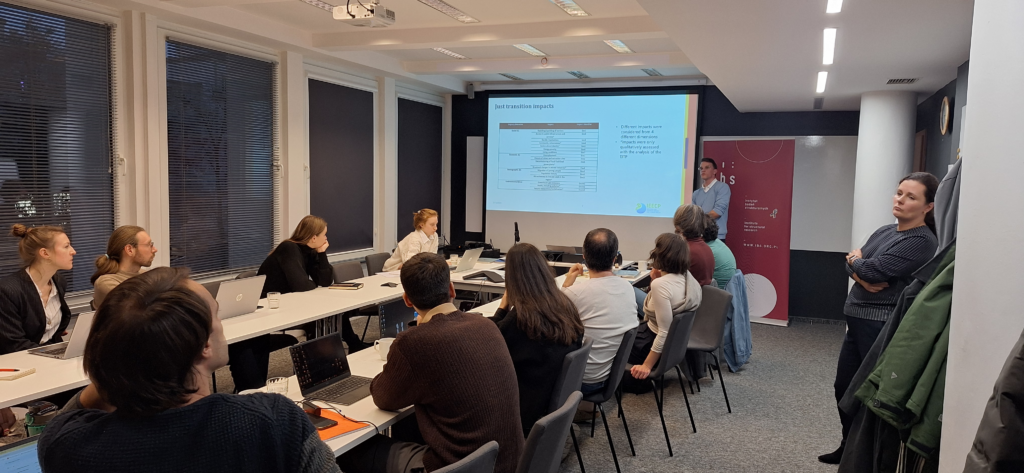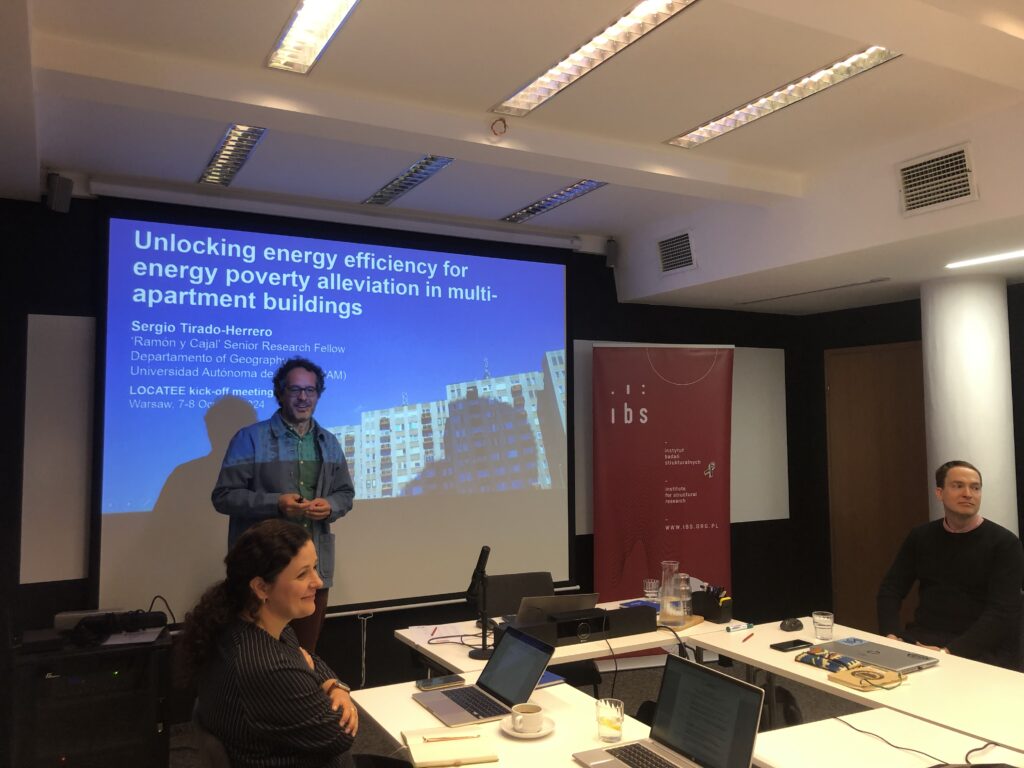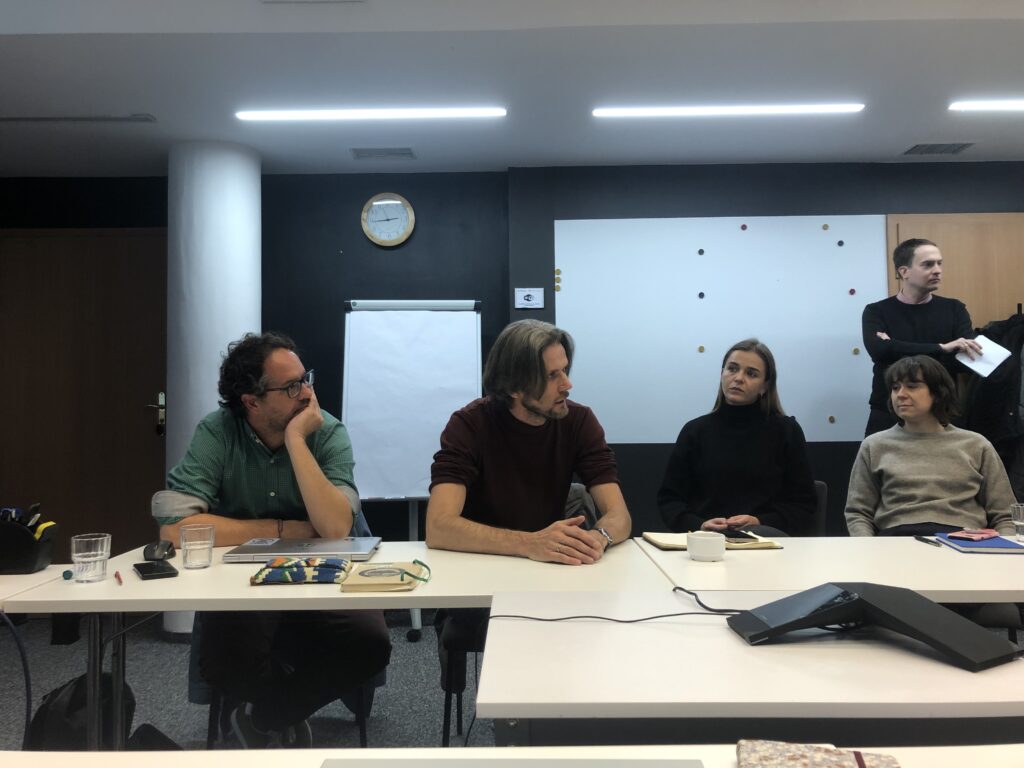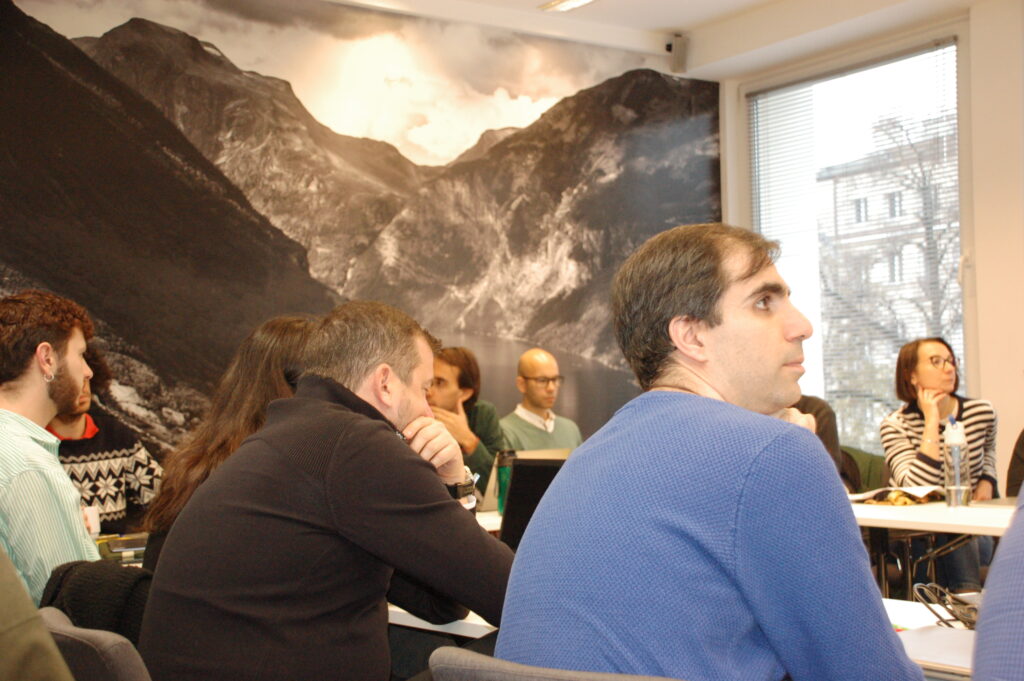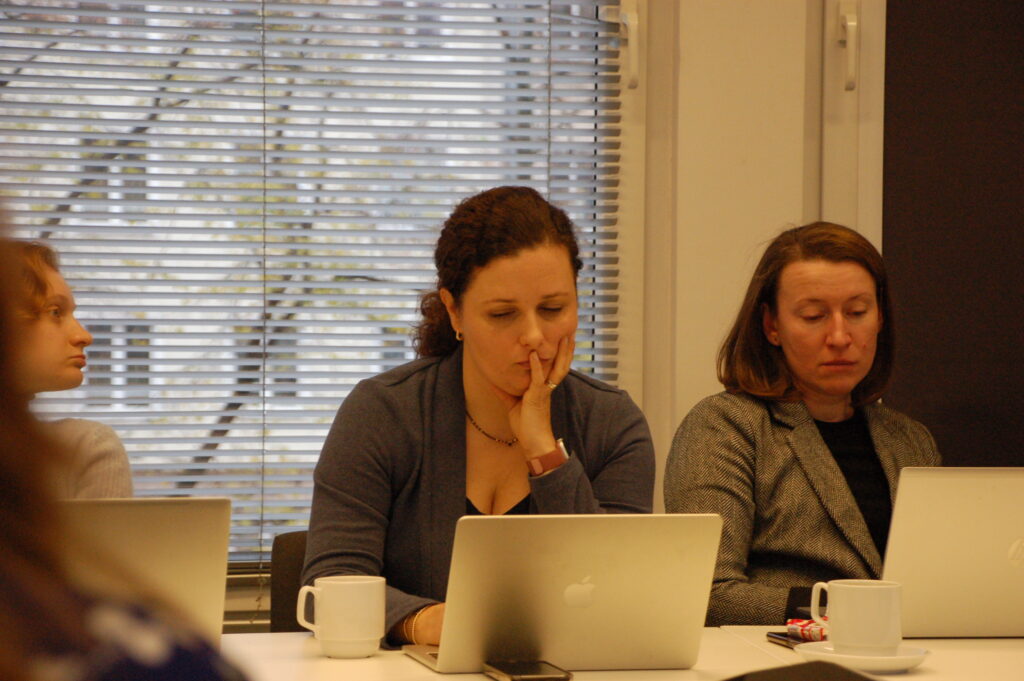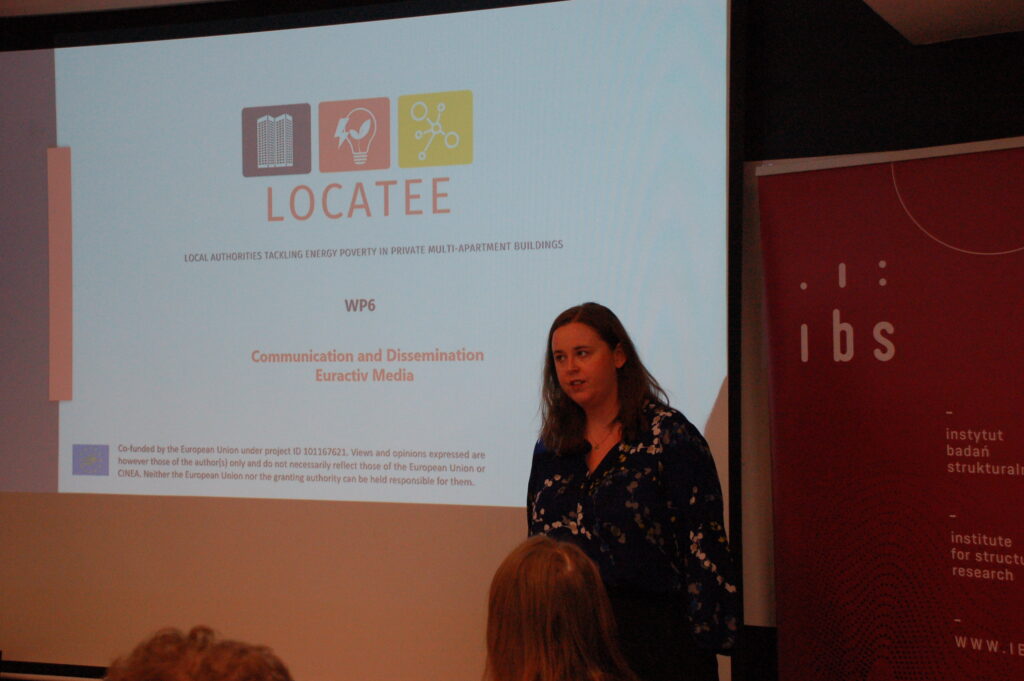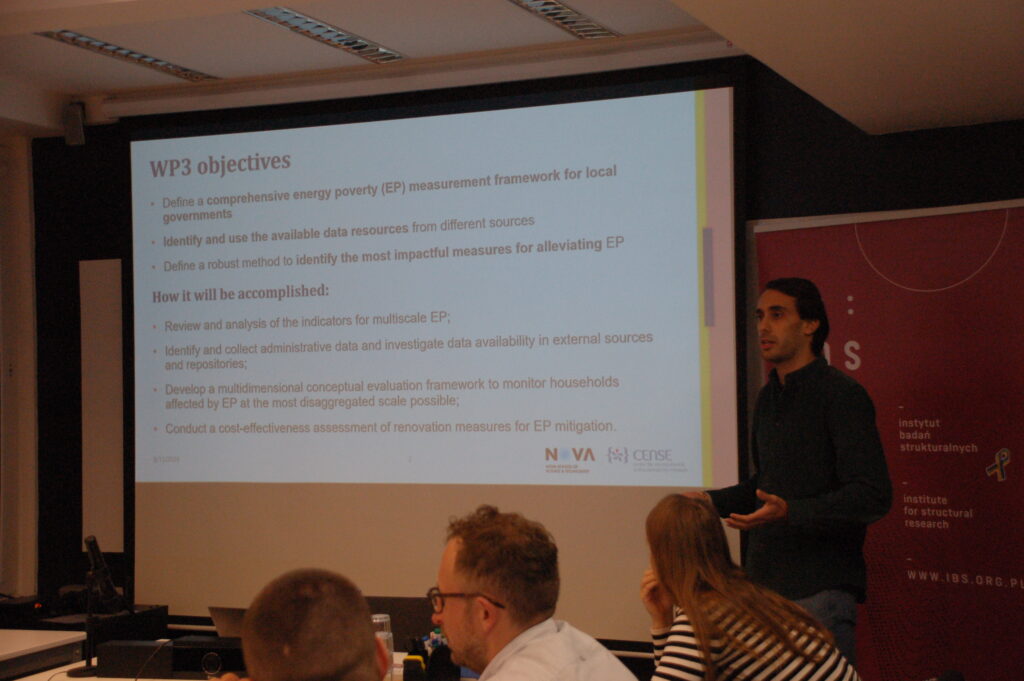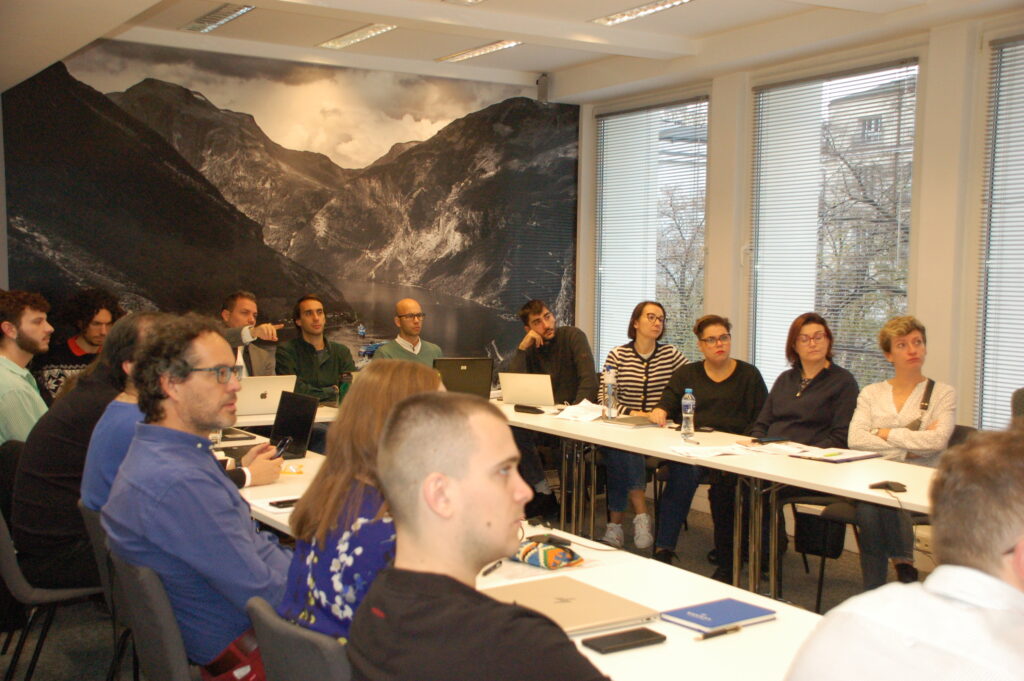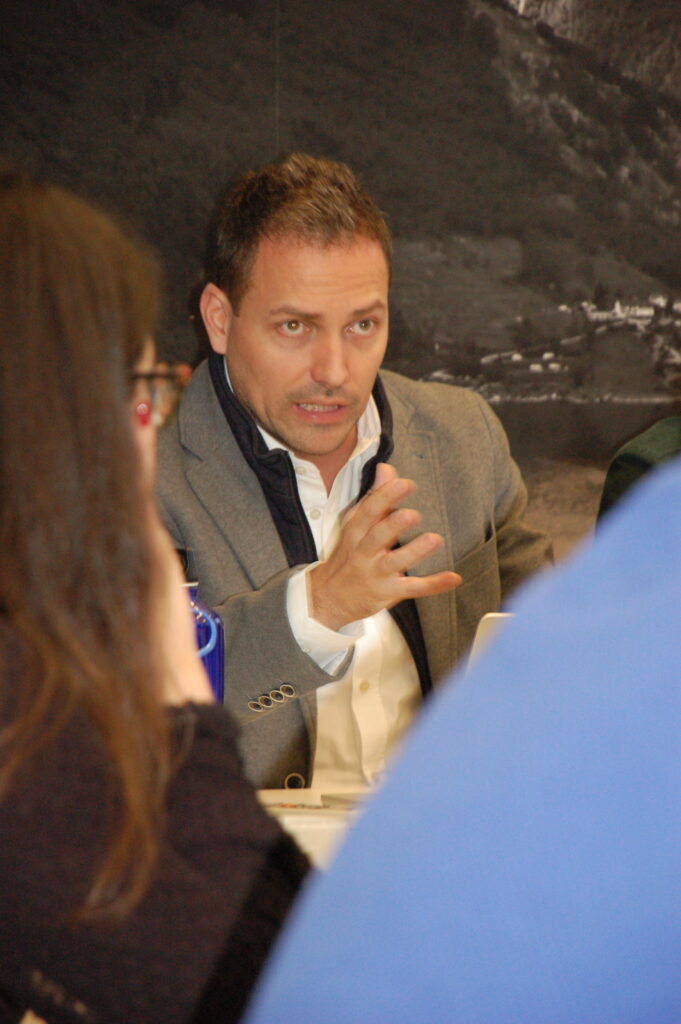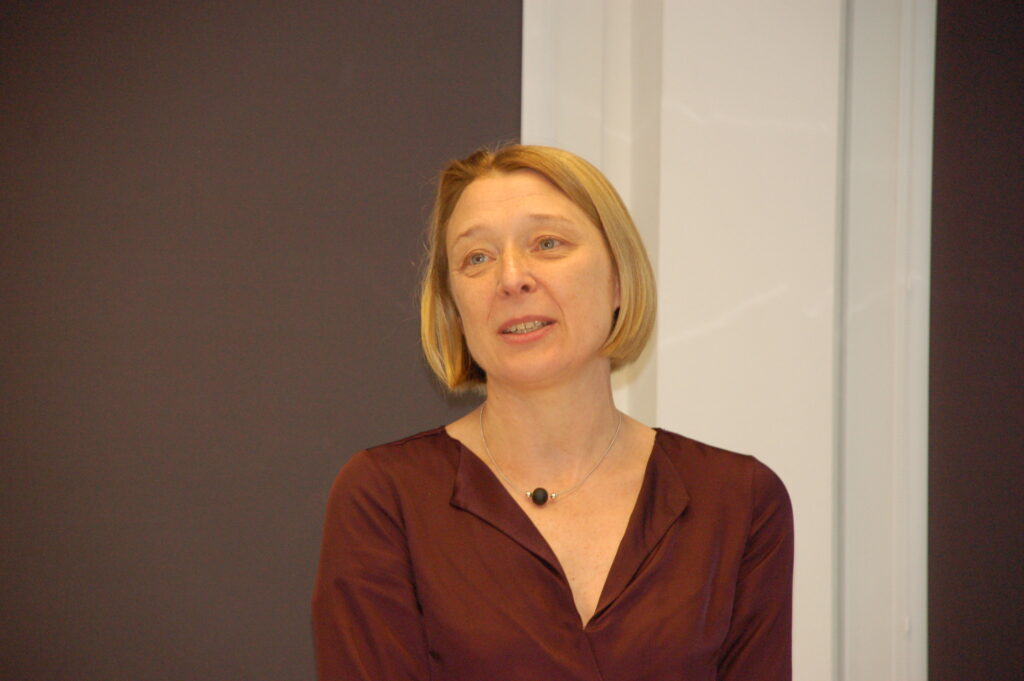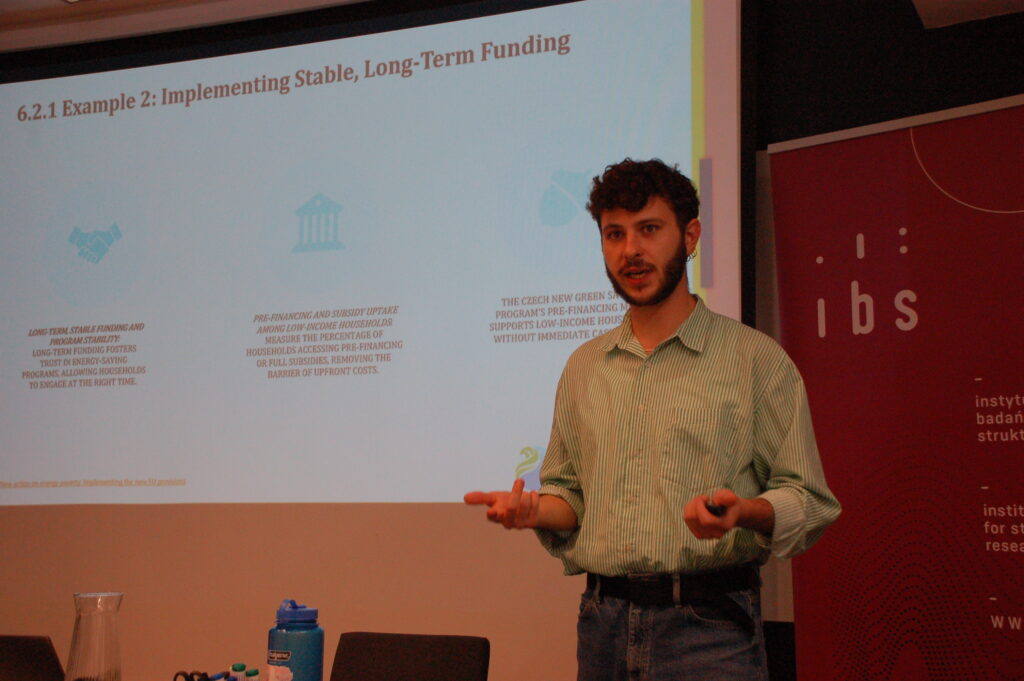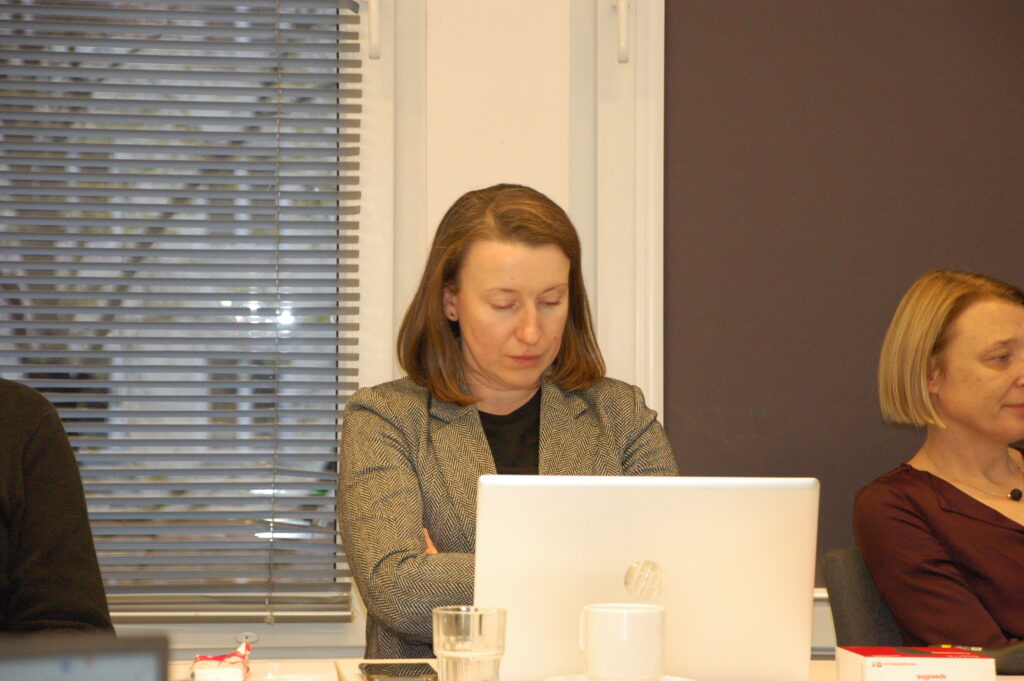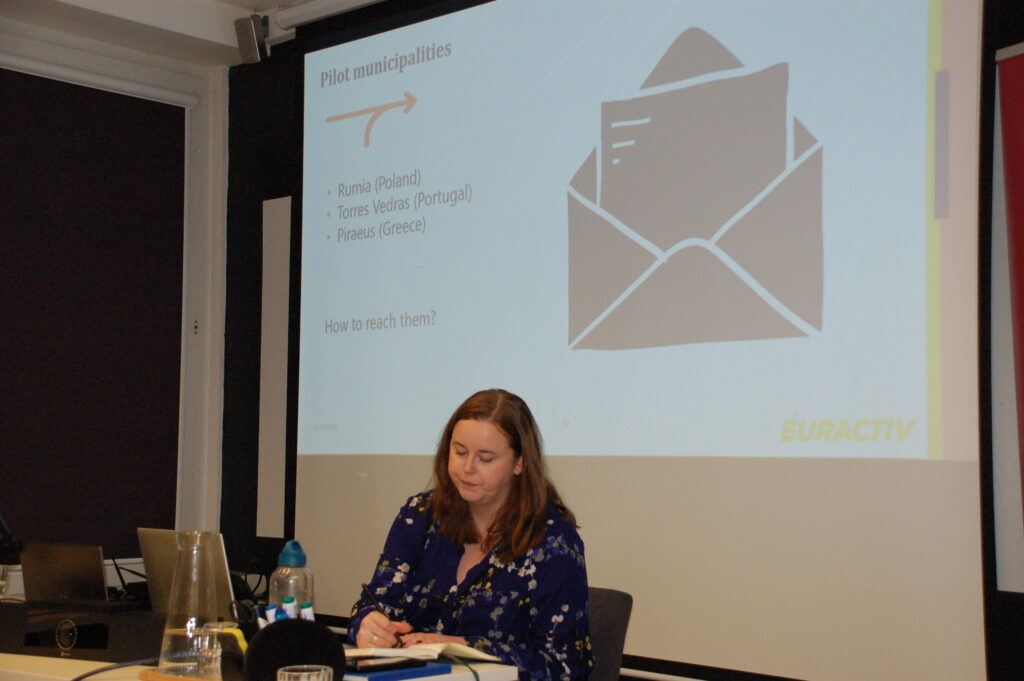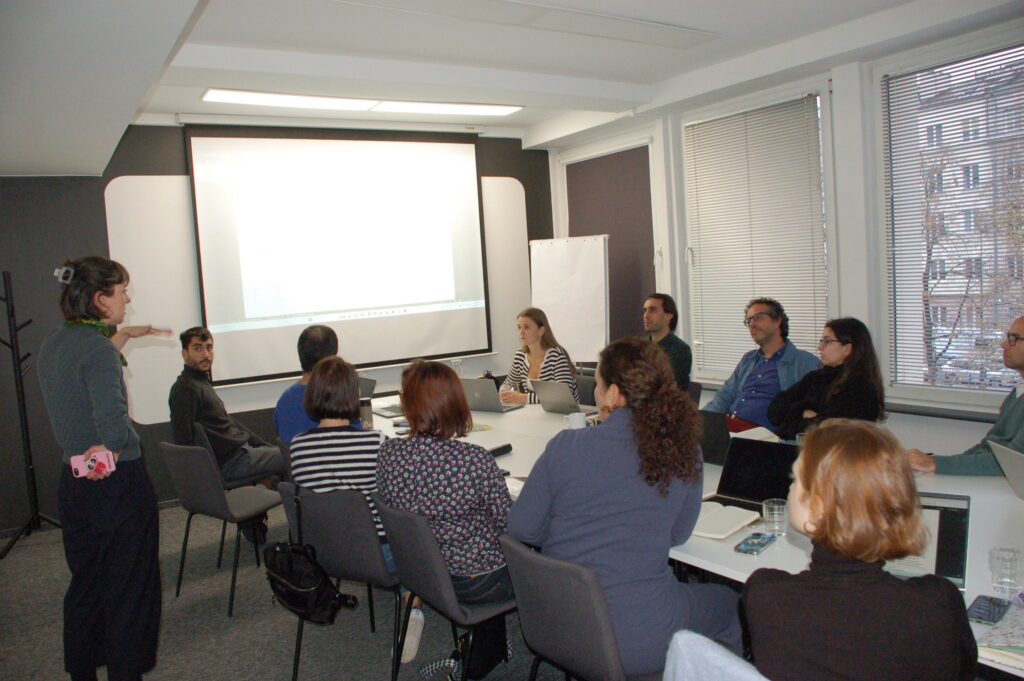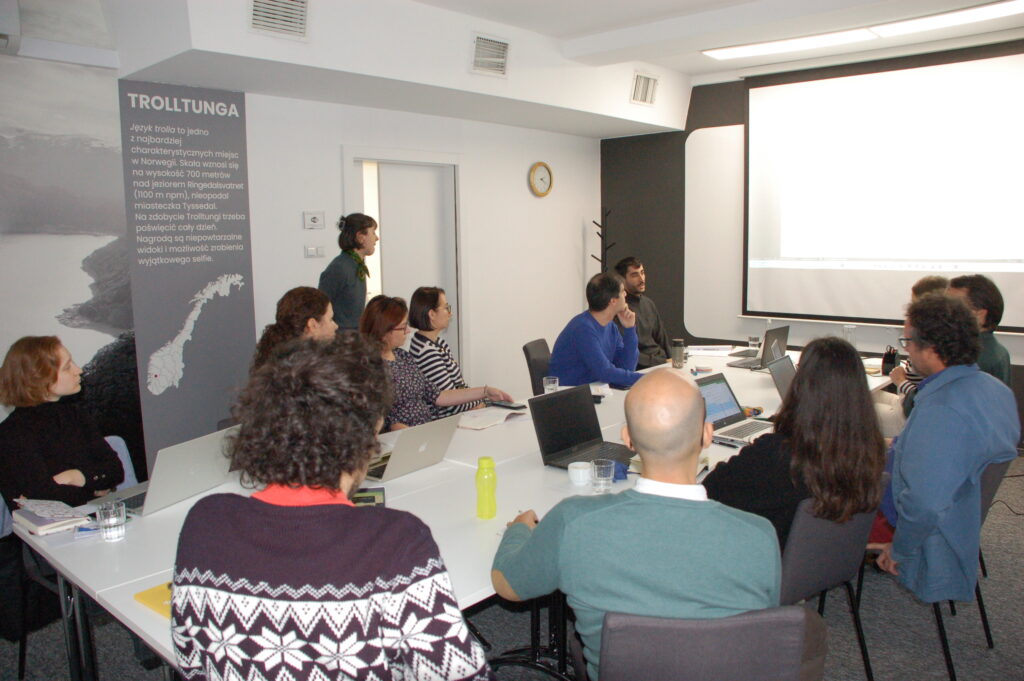The solutions developed during the project will be implemented in three municipalities: Rumia (Poland), Piraeus (Greece) and Torres Vedras (Portugal).
The first day of the LIFE LOCATEE project kick-off meeting was a research seminar. Sergio Tirado Herrero from the Universidad Autónoma de Madrid gave a presentation entitled ‘Unlocking energy efficiency for energy poverty alleviation in multi-apartment buildings’.
Afterwards, representatives from each consortium member had the opportunity to share the results of their previous research on energy poverty, building renovation, and energy efficiency carried out in other projects.
João Pedro Gouveia and Pedro Palma from NOVA discussed the challenges and opportunities of diagnosing energy poverty at local, national, and European levels. They shared their experiences in this field, which they gained through involvement in the Energy Poverty Advisory Hub (EPAH).
Dimitris Papantonis from UPRC presented the prospects for developing policies to improve energy efficiency and the conclusions of the ENPOR project’s research to the seminar participants.
Marco Peretto and Samuele Livraghi from IEECP discussed the JUSTEM project’s findings on the just transformation of coal regions and combating energy poverty in these areas.
Laura Palencikova and Zita Kakalejcikova from Habitat for Humanity International tried to answer the question of how to alleviate energy poverty in the context of privatised housing based on the experience of the ComACT project.
Jan Frankowski and Joanna Mazurkiewicz from IBS shared the findings of the ENBLOC project on energy transition in housing associations in Poland and the Czech Republic. Aleksandra Prusak talked about the results of the CARE project, demonstrating the functionality of a tool for diagnosing and planning the renovation sequence of municipal buildings in Warsaw.
The kick-off meeting of the LIFE LOCATEE project was also honoured by representatives of Habitat for Humanity Poland, the City of Warsaw and the National Energy Conservation Agency (KAPE). As a result, planning the following LIFE LOCATEE activities was preceded by an inspiring exchange of experiences – of both practitioners and researchers involved in alleviating energy poverty.
On the second day, the LIFE LOCATEE consortium listened to a representative of the CINEA supervising the project. This was followed by a presentation by representatives of the municipalities engaged in the project, who explained the specificities of the cities they represent. Participants of the kick-off meeting also exchanged good practices in running LIFE projects and planned the next activities.
